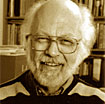Commentary on Deuteronomy 30:15-20
This Pentecost text has commonly been considered the conclusion to the farewell speech of Moses to the people of Israel (Deuteronomy 29:1-30:20).
This text is a part of the announcement of a new covenant of God with the people of Israel (Deuteronomy 29-32; see 29:1, 10-15), sometimes called the Moab covenant. This word from Moses looks into the future and urges the people to love the Lord their God and to keep the commandments, for in so doing they will choose life for that future and not death.
While the placement of the text in Deuteronomy sets the text at the end of the wilderness period in Israel’s life, it is often suggested that it was (also) delivered to a 6th century Israel that had been driven into Babylonian exile (see Deuteronomy 29:25-28). In both settings the shape of Israel’s future was uncertain and this word from God was intended to assure God’s people that a future of life in the land of promise was certainly in view. At the same time, how the people responded to the word of God would shape the nature of that future. In the interests of life in that future, Israel should renew its loyalty to God and commit itself anew to the relationship.
The entire people of God is in view in this text. Why, then, is the second person singular “you” used in this text and commonly in Deuteronomy? The singular is probably used because it speaks more personally to the community (compare the “us” in 30:12-13).
It is important to recognize that this word of God is delivered to a people that had already been redeemed by God (see Deuteronomy 7:7-8). This is a word from God to God’s chosen and redeemed people. So, when they are called by God to “choose life” (Deuteronomy 30:19), this is a word given to them from within their relationship with God, not a means by which they could become the people of God. It is a word indicating that the nature of their future within that relationship would be shaped by their responsiveness to God and God’s word. What they do and say within that relationship will shape the nature of their future. The future is at least somewhat open here, open to what the people will do and God’s response to the people. It is likely that the circumcision of the heart by God (Deuteronomy 30:6) enables this obedience by Israel.
A dominant theme in this text, repeated often, is “life, live”; words or expressions for (long) life occur eight times in virtually every verse! These words are spoken to the people with a specific purpose in mind: LIFE. Interestingly, another oft-repeated word is “today” (Deuteronomy 30:2, 8, 11, 15, 16, 18, 19). What is being described is a current situation; how Israel responds to God will affect the nature of their present and future life.
The word “life” has reference to much more than physical life or the beating of the heart. The language of “life” catches up the ideas of good health, daily blessings, happiness, and fruitfulness. It means to be strong in body and mind and spirit, to thrive in one’s personal life and in one’s relationship with others. Things are going well for you! This language is understood in comprehensive terms. God speaks and acts on behalf of the people for the sake of all aspects of their ongoing life. God speaks these words in order that the people might live well and live long in the land that God has promised them.
God’s giving of the “commandments” (Deuteronomy 30:8, 10, 11, 16) is in the interests of the best life possible and the people’s obedience of the commandments contributes to a life more filled with blessing. As the book of Proverbs puts it: “Keep my commandments and live” (Proverbs 4:4; 7:2). Deuteronomy 5:33 gathers these themes very well: “You must follow exactly the path that the LORD your God has commanded you, so that you may live, and that it may go well with you, and that you may live long in the land that you are to possess.” God gives the law in the service of life. This understanding of law and its purpose goes back to creation, to a pre-sin world (Genesis 1:26-28; 2:16-17).
Israel is called not only to love and obey the Lord their God, but to “hold fast” to him Deuteronomy (30:20; see 11:22; for the interhuman use of the word in the sense of “hold close,” see Genesis 2:24). That basic concern is summarized at a key juncture in the beginning of the book (Deuteronomy 6:4): “You shall love the Lord your God with all your heart, and with all your soul, and with all your might.”
Two possible futures are laid out in this text: life and death (Deuteronomy 30:15; 30:19). Note that the future is not laid out in absolute certainty — as if God knows that future in detail and could describe it to the people right now. The future is noted in terms of possibilities. What Israel says and does will give shape to that future, but what that shape will be is not determined in advance; that future remains open to what happens within the relationship, even for God.
“Choose life.” This is the only use of the verb “choose” (behar) with human beings as subject in the Old Testament (usually God “chooses”). Israel is to choose to receive what God has promised. To choose life is to love the Lord your God, obey him, and to hold fast to him. Human beings must make choices and the choosing of life will make a significant difference in the shape that life takes. The call is for Israel to take a stand on behalf of the word of God as it relates to life. Israel’s positive response would be enabled by God’s gracious action. To choose life is to trust in the promises of God (Deuteronomy 30:20) and such a choice will make a difference.
Deuteronomy does not state how Israel responded to this word of Moses. The effect of this word to the people is open-ended. This absence suggests that this question is an open-ended question for “today” as well, that is, for all audiences to which the book is written. The book ends with uncertainty regarding what Israel’s response will be. It may be that each reader is called to provide that response.


September 4, 2016